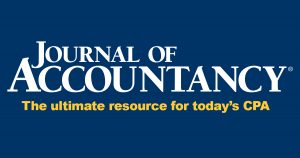 Admin—
Admin—The IRS definition of "broker" in its proposed regulations for digital asset reporting under Sec. 6045 (REG-122793-19) stretches the statutory definition "beyond the breaking point" and adds to security and privacy concerns, crypto industry advocates told the IRS in a public hearing.
The IRS is using an "overly broad definition of an intermediary" to include people "who may participate in or lead to a transaction even if they do not perform it, such as providing an automated market maker system, providing services to discover the most competitive buy-and-sell prices, providing noncustodial wallets that allow users to access trading platforms providing services that allow access to the internet, including browsers and internet service providers," Lawrence Zlatkin, vice president of tax for Coinbase, said during Monday's hearing. "Including persons within these broad categories of activities stretches the meaning of the statute beyond the breaking point."
Zlatkin also mentioned that the proposed regulations will place a tremendous burden on the IRS, quoting the agency's director of digital assets as saying the Service estimates it will receive 8 billion information returns, just from the Form 1099-DA that's being developed to report gross proceeds of digital asset sales and exchanges. Another IRS official said Tuesday that the figure is an estimate of what the agency could receive but that "the IRS cannot predict an exact number at this time."
The IRS originally estimated that the regulations would affect 13 million to 16 million digital asset owners, acknowledging at the time that the figure could be low, along with up to 9,500 brokers.
Thirteen speakers, including Zlatkin, shared their concerns with IRS and Treasury officials for 90 minutes during the telephone hearing. In addition, the proposed regulations have drawn almost 125,000 comments, including almost 45,000 posted on regulations.gov.
In the preamble to the proposed regulations, which were posted in the Federal Register in August, the IRS and Treasury explained that they extend information reporting rules under Sec. 6045 to include brokers who act as agents, principals, or digital asset middlemen to sell digital assets for others. The regulations cover sales or exchanges of digital assets for cash, broker services, and property of a type that is subject to reporting by the brokers. The proposed regulations also extend the reporting rules to brokers who effect, on behalf of customers, payments of digital assets associated with payment card and third-party network transactions subject to reporting under Sec. 6050W.
The proposed regulations clarify that the definition of broker for purposes of Sec. 6045 includes digital asset trading platforms, digital asset payment processors, certain digital hosted wallet providers, and persons who regularly offer to redeem digital assets that were created or issued by that person.
The proposed regulations were issued in response to amendments to Sec. 6045 made by the Infrastructure Investment and Jobs Act, P.L. 117-58, which was signed into law in November 2021.
Speakers expressed privacy concerns, saying the broad definition of broker in the proposed regulations may mean too many people will receive too much personal information from the user.
Brokers would be required to collect, store, and report the user's crypto wallet address to the government, "which will enable both the information collector and the government to track the entire transaction history of that individual regardless of whether other transactions in that history are required to be reported," said Gina Moon, general counsel for OpenSea. "And the definition of digital asset middleman is broad enough to be multiple entities as brokers, due to their direct or indirect involvement, who taxpayers will now need to share that sensitive PII [personally identifiable information] with multiple entities for the same transaction. For NFTs, this is equivalent of wanting to sell a concert poster on Craigslist but being required to share your name your home address, social security number, an entire Venmo history with Craigslist, Venmo, and the IRS."
Moon and others argued that some NFTs should be excluded if they are collectibles and not used as financial instruments.
Narrowing the definition of NFTs subject the proposed regulations and removing indirect service providers from the definition of digital assets middleman "will enable taxpayers and the IRS to obtain the information they need for tax compliance and enforcement" without needlessly creating security and privacy risks, Moon said.
— To comment on this article or to suggest an idea for another article, contact Martha Waggoner at Martha.Waggoner@aicpa-cima.com.